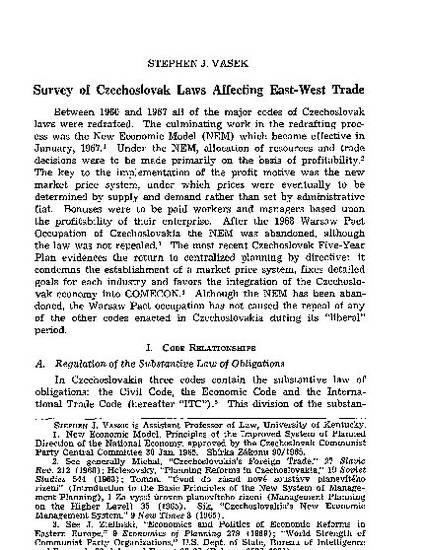
Between 1960 and 1967 all of the major codes of Czechoslovak laws were redrafted. The culminating work in the redrafting process was the New Economic Model (NEM) which became effective in January, 1967. Under the NEM, allocation of resources and trade decisions were to be made primarily on the basis of profitability. The key to the implementation of the profit motive was the new market price system, under which prices were eventually to be determined by supply and demand rather than set by administrative fiat. Bonuses were to be paid workers and managers based upon the profitability of their enterprise. After the 1968 Warsaw Pact Occupation of Czechoslovakia the NEM was abandoned, although the law was not repealed. The most recent Czechoslovak Five-Year Plan evidences the return to centralized planning by directive: it condemns the establishment of a market price system, fixes detailed goals for each industry and favors the integration of the Czechoslovak economy into COMECON. Although the NEM has been abandoned, the Warsaw Pact occupation has not caused the repeal of any of the other codes enacted in Czechoslovakia during its "liberal" period.

American Journal of Comparative Law, Vol. 20, No. 3 (Summer 1972), pp. 453-484